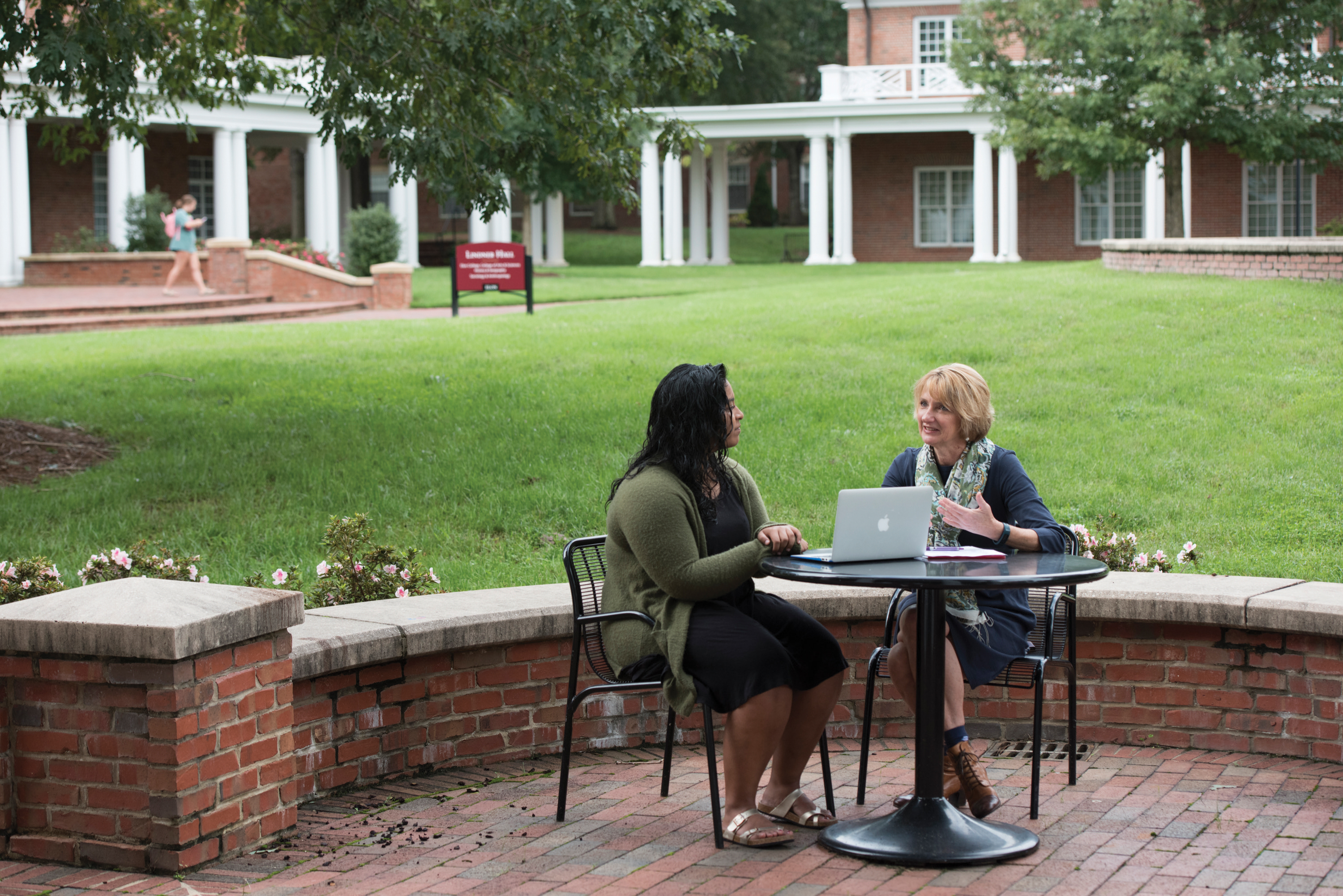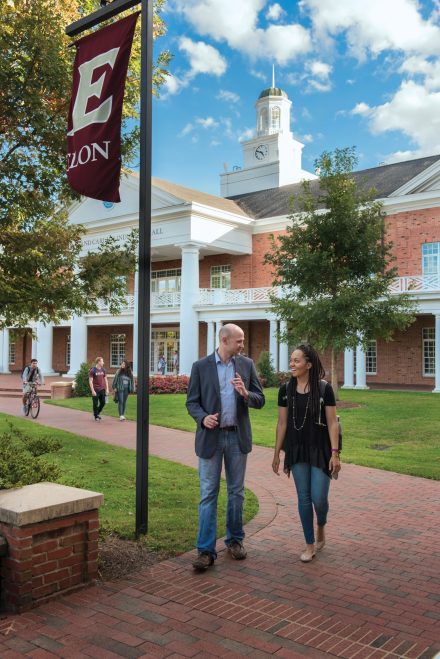A recent series of blog posts from the Center for Engaged Learning captures highlights and stories from new research on mentoring for learner success.
 What, exactly, does high-quality mentoring entail? The first blog post in a series on mentoring from Elon University’s Center for Engaged Learning explores this question.
What, exactly, does high-quality mentoring entail? The first blog post in a series on mentoring from Elon University’s Center for Engaged Learning explores this question.
In 2020, Elon became one of ten institutions in the inaugural cohort of the American Council on Education (ACE) inclusive learning community called the Learner Success Lab (LSL), with an institutional focus on mentoring for learner success. One of their first goals was to develop a common definition of mentoring relationships, since a review of the core resources showed that there is not one accepted definition. They concluded that “a constellation model in which students have multiple meaningful relationships, including mentoring relationships, with peers, staff, and faculty, among others who provide multifaceted support and guidance, acknowledges the complex realities of developmental relationships and the continuum along which mentoring occurs.”
Three other blog posts in the series were written by three Elon faculty and experienced mentors: Maureen Vandermaas-Peeler, Cynthia Fair, and Caroline Ketcham. The posts make the argument that “mentoring is not (just) have a cup of coffee,” but instead, “mentoring must be situated in a larger sociocultural context and can only be understood holistically and longitudinally, rather than as a snapshot of a meaningful moment.”
In another post, Vandermaas-Peeler, Fair and Ketcham each share a story of a challenging, yet ultimately rewarding, mentoring experience.
Vandermaas-Peeler said, “A common thread throughout is that mentoring is meaningful, time-consuming and intensive, and there are always low points to navigate and overcome, and successes and achievements to celebrate.”
The three mentors share insights from interviews with over 115 faculty, staff, and students about their mentoring relationships. An overarching theme that emerged was that while many students had stories of wonderful mentors who changed their lives for the better, there were many instances of challenges and tough conversations as well. Excellent mentors must balance challenge and support, which can be time-consuming, hard work.
One study participant said, “I think a consistent thread has been seeing in me potential that I didn’t know was there, holding me to a higher standard than I thought I was capable of, always kind of pushing me to take—whether it was my research or my writing or scholarship—to the next level, and again, in ways I didn’t imagine I could.”
 The most recent post in the series, by Moore and Vandermaas-Peeler, explores the varied functions that mentors can serve over the course of a student’s education. Different mentors might support a student in very different ways. Some mentors might be assigned to a student, others are intentionally sought out by the student and some mentoring relationships develop informally over time.
The most recent post in the series, by Moore and Vandermaas-Peeler, explores the varied functions that mentors can serve over the course of a student’s education. Different mentors might support a student in very different ways. Some mentors might be assigned to a student, others are intentionally sought out by the student and some mentoring relationships develop informally over time.
Moore and Vandermaas-Peeler conclude that colleges must “foster multiple pathways for mentoring, rather than pursuing a one-size-fits-some model. University mentoring initiatives should invest in fostering relationship-rich campuses and helping students develop strategies for identifying multiple meaningful relationships that could evolve into mentoring relationships and that address aspects of their developmental support needs within a mentoring constellation.”
More can be read about the research happening at Elon on mentoring, including the complete ACE report, on the Mentoring at Elon website. Also look out for forthcoming work from the three-year, multi-institutional Center for Engaged Learning Research Seminar on Mentoring Meaningful Learning Experiences, which kicks off this summer.
CEL intern Carissa Pallander contributed to this article.


